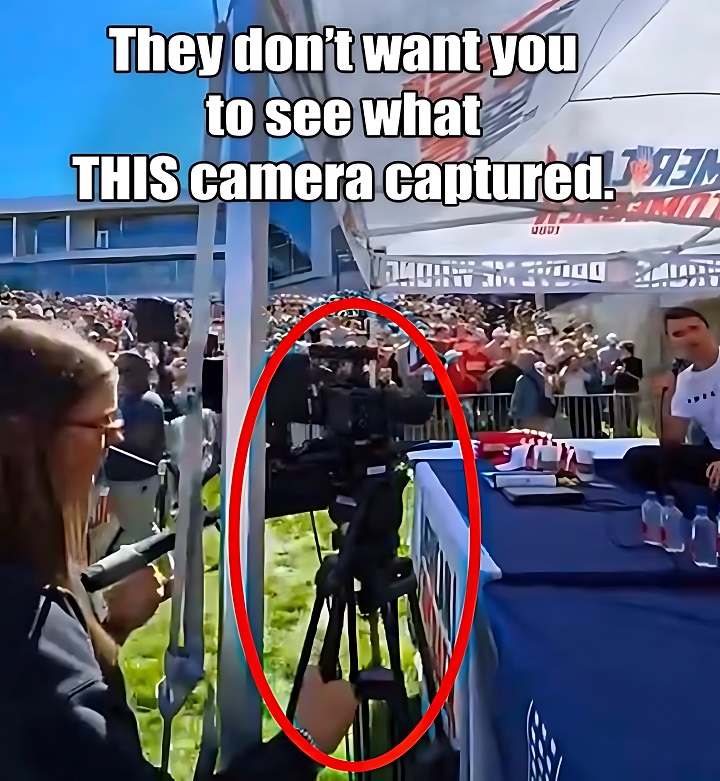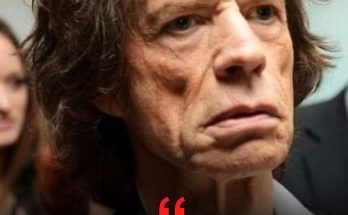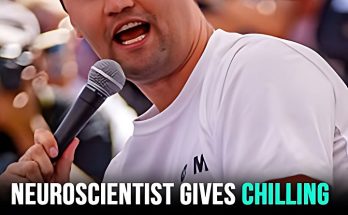In the golden haze of a Utah afternoon, where the Rocky Mountains stand sentinel over dreams of renewal, the air at Utah Valley University crackled with anticipation. It was September 10, 2025, and the campus quad had transformed into a sea of youthful fervor—hundreds of students, flags snapping in the breeze, eyes fixed on the man who had become their beacon. Charlie Kirk, the 31-year-old dynamo behind Turning Point USA, perched on a simple stool under the open sky, his voice a rallying cry against what he saw as the erosion of American values. “We’re awakening the next generation,” he declared moments earlier, his words igniting cheers that echoed off the brick buildings. Little did anyone know, in the next 30 seconds, that fire would be extinguished in a blur of blood and betrayal, a moment so raw and heartbreaking that even the surveillance footage has been shielded from public eyes, labeled too devastating for the world to witness.
Charlie Kirk wasn’t just a speaker; he was a phenomenon. Born in the suburbs of Chicago in 1993, he had risen from a precocious teen debating in high school clubs to the architect of a conservative revolution. At 18, he co-founded Turning Point USA with a vision to counter what he called “leftist indoctrination” on college campuses. By his early 30s, the organization boasted millions in funding, chapters on over 2,500 campuses, and Kirk himself as a media juggernaut—hosting a daily radio show that reached 200 stations, rubbing shoulders with presidents, and mobilizing voters in swing states. His marriage to Erika, a former beauty queen turned podcast powerhouse, had blessed them with two toddlers: Hanna, three, with her father’s infectious curiosity, and Asher, a giggling one-year-old who toddled after Charlie during rare family downtime. “He’s the glue,” Erika often said, her eyes lighting up at the mention of the man who balanced fiery speeches with bedtime stories.
That day in Orem, Utah, the event—”Awakening the Next Generation”—was a triumph in the making. Kirk had flown in from Phoenix, joking with his team about the thin mountain air as they set up the outdoor stage. The crowd, a mix of wide-eyed freshmen and seasoned activists, buzzed with energy. Banners fluttered: “Faith, Family, Freedom.” Kirk, dressed in his signature crisp button-down, sipped water between segments, fielding questions from students handpicked for their passion. He was in his element, dismantling arguments on free speech with the precision of a surgeon, his laughter punctuating the applause. “This is why we fight,” he said, gesturing to the sea of faces. “For you.”

The clock ticked toward 3:15 p.m. Kirk leaned forward on his stool, mid-thought about the “radical left’s grip on education,” when the world fractured. From a rooftop perch some 200 yards away—unseen amid the event’s lax security—a single shot rang out. It wasn’t the dramatic crack of Hollywood lore; witnesses later described it as a muffled pop, like a firecracker lost in the wind. But in that instant, everything changed. The bullet, fired from a high-powered rifle by 28-year-old Tyler Robinson, sliced through the air with deadly intent, striking Kirk in the side of the neck.
What followed in those harrowing 30 seconds has been pieced together from eyewitness accounts, fragmented phone videos, and the official timeline released by authorities—details so visceral that law enforcement has withheld the full footage, citing the “profound emotional trauma” it would inflict. Kirk’s hand instinctively flew to his neck as the impact jolted him backward. Blood—bright and unrelenting—spurted from the wound, soaking his collar in seconds. His eyes widened in shock, not pain at first, but confusion, as if his body betrayed him mid-sentence. “He touched it, looked down, and just… crumpled,” recalled student attendee Mia Herrey, her voice breaking in a later interview. The stool tipped, and Kirk fell to his left, his body hitting the wooden platform with a thud that silenced the crowd.
Panic ignited like dry tinder. Students screamed, a wave of bodies surging forward then recoiling in horror. “Get down! Get down!” shouted a nearby aide, diving to shield Kirk as blood pooled beneath him. His chief of staff, Tyler Bowyer, lunged onto the stage, pressing a jacket to the gushing artery, his hands trembling as Kirk’s gasps turned ragged. “Charlie, stay with me,” Bowyer pleaded, but Kirk’s gaze had already glazed, his fight ebbing with each heartbeat. In those fleeting moments, as medics swarmed from the wings, Kirk’s lips moved—whispers lost to the chaos, perhaps a final prayer or a name: Erika, Hanna, Asher. The wound was catastrophic; the bullet had nicked the carotid, severing life in a torrent no tourniquet could stem.
The stage, moments ago a pulpit of power, became a tableau of tragedy. Blood smeared the planks, Kirk’s notes scattering like fallen leaves. Audience members trampled chairs in their flight, some frozen in disbelief, phones capturing only the periphery—the collapse, the cries, but not the intimate agony of a man whose voice had commanded millions now reduced to silence. “It was like watching a light go out,” said Jason Chaffetz, the former congressman who moderated the event, his face pale as he recounted fleeing the stage. “One second he’s alive, fighting; the next, he’s gone.” Paramedics loaded Kirk onto a stretcher, sirens wailing as they raced to Utah Valley Hospital, but by 3:47 p.m., the pronouncement came: time of death, 3:32 p.m. Thirty seconds of horror had claimed a life that burned bright for a generation.
The aftermath rippled outward like shockwaves. Erika Kirk, in Arizona prepping a family event, received the call mid-conversation. “I dropped the phone,” she later shared in a voice raw with grief. Racing to Utah, she arrived too late, collapsing at her husband’s side in the sterile morgue, whispering apologies for the future they’d planned—family vacations, expanding Turning Point, watching their kids grow. Their children, shielded by grandparents, asked innocent questions: “When’s Daddy coming home?” Hanna’s plea, captured in a private moment, haunted Erika: “He’s in heaven now, sweetie, watching over you.” The Vances—JD and Usha—joined her on the flight home, Usha’s counsel a lifeline in the void.
News of the shooting exploded across screens, #CharlieKirk trending with a mix of outrage and mourning. President Trump, en route to a rally, diverted to address the nation: “Charlie was a patriot, a fighter. This assassination by a deranged radical won’t break us—it’ll forge us stronger.” The suspect, Tyler Robinson, a disgruntled ex-student with a manifesto decrying “fascist influencers,” was nabbed 48 hours later in a Provo hideout. His Discord chats revealed a network of 20-plus extremists, plotting in shadows, but the lone shot was his. FBI Director Kash Patel vowed a sweeping probe: “This wasn’t random; it was a strike at our core.”
Yet the true heartbreak lay in the unseen—the personal toll of those 30 seconds. Friends sifted through Kirk’s final texts: a good-morning to Erika, a pep talk to a young activist. His radio show, “The Charlie Kirk Show,” went dark, replaced by tributes from allies like Ben Shapiro and Candace Owens, who choked up on air: “He was the brother I never had.” Turning Point pressed on, Erika vowing at a vigil: “Charlie’s mission lives in every student he inspired. We’ll awaken the world—for him.”
In Phoenix, the memorial at State Farm Stadium drew thousands, red hats bobbing under stadium lights. Erika spoke last, her voice steady amid tears: “Those 30 seconds took him, but they can’t take his fire.” As the crowd chanted his name, the mountains of Utah seemed to echo the loss—a reminder that in politics’ brutal arena, truth-tellers pay dearly. Charlie Kirk fell, but in the hearts he ignited, he rises eternal, his unseen agony a scar on the soul of a divided nation.



